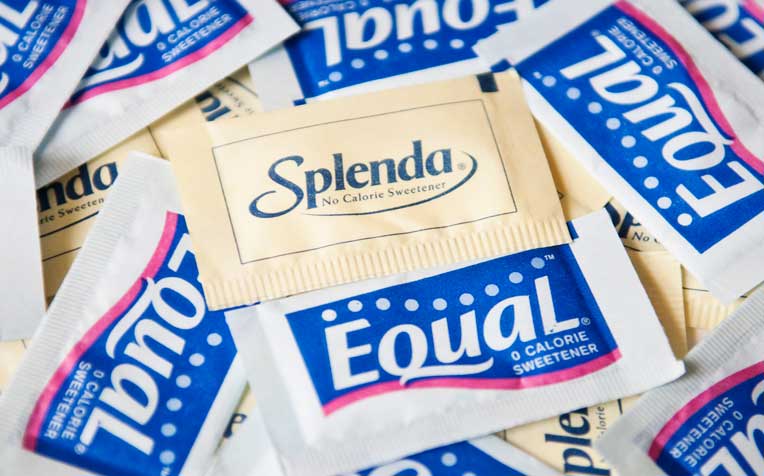
The associations we make with sugary foods can lead to cravings and over-consumption, in turn causing a host of health problems.
One common way to satisfy a sugar craving while controlling your weight and blood sugar is to use artificial sweeteners, or sugar substitutes, that are made from chemical and natural substances.
Sugar cravings are a common phenomenon, particularly after a meal rich in simple carbohydrates, or when you need comfort foods to get through a stressful day. Just look at the number of dessert and bubble tea shops within a small vicinity to get affirmation!
But why do we get these cravings? The Dietetic & Food Services, Changi General Hospital (CGH), a member of the SingHealth group, shares that "Not only are sugary snacks and desserts highly pleasing to the palate, they also stimulate the release of brain chemicals such as endorphins and serotonin, which relax us and give us a momentary ‘high’".
The associations we make with sugary foods can lead to cravings and over-consumption and thus, to a host of health problems such as obesity, tooth decay and diabetes.
One gram of sugar (about one-fifth teaspoon as 1 teaspoon = 5g sugar) has four calories while most artificial sweeteners have virtually no calories except for those using sorbitol which still contain 2.6 calories per gram.
Artificial sweeteners are found in ready-to-eat foods and drinks, including soft drinks, candy, fruit juice, ice cream and diabetic food products, but just how safe are they? Is it a good idea to replace sugar in our daily diet with them?
Sweeteners are acceptable in small doses
Sweeteners are okay if taken in small amounts and occasionally. Excessive intake is not advisable because some sweeteners, based on certain forms of carbohydrate source, still contain calories.
Sugar substitutes that are commonly available in Singapore include:
- Aspartame (found in Equal)
- Saccharin (Hermestas)
- Sucralose (Splenda)
- Stevia, a herbal product (Equal Stevia, Jovia)
- Xylitol, a plant-based sugar alcohol (XyloSweet)
Other sugar substitutes include acesulfame potassium, found in carbonated drinks and protein shakes in Singapore.
Lose that sweet tooth
Dieticians say that sweeteners with little or no calories, such as aspartame, can help with weight management. Similarly, in the case of diabetes management, sweeteners that do not contain glucose can help with blood sugar control.
But they emphasise that it is best to try to do without sweeteners and to acquire a palate that prefers less sweet tastes. Nip the problem in the bud right?! Besides, sweeteners have not been found to help in reducing sugar cravings. Like sugar, they only provide temporary satisfaction.
You will find that sweeteners work best if you use only the recommended amount or even less than that. Most of the sweeteners are many times sweeter than sugar but because of the way they are packaged (tablet or powder form), most people tend to use more, based on the false assumption that the suggested amount will not sweeten the food.
The special case of aspartame
While studies carried out in the early 1970s found a link between saccharin and bladder cancer in laboratory rats, subsequent studies have failed to confirm this link with humans. Saccharin has thus been declared safe for consumption. In fact there is no scientific evidence that any of the artificial sweeteners approved for consumption pose any serious health risks.
However, people who have the inherited disorder phenylketonuria (PKU) cannot safely consume the amino acid phenylalanine. They are cautioned to avoid foods and drinks sweetened with aspartame, as this particular compound contains this amino acid.
Dieticians also warn that aspartame should not be used in cooking or baking as the heating process denatures the protein and can cause a bitter aftertaste.
Now that we have shared the pros and cons of sugar substitutes, you can make your own judgement as to when to use them if needed. But as always, moderation is key!
Ref. J24
Contributed by

















 Get it on Google Play
Get it on Google Play